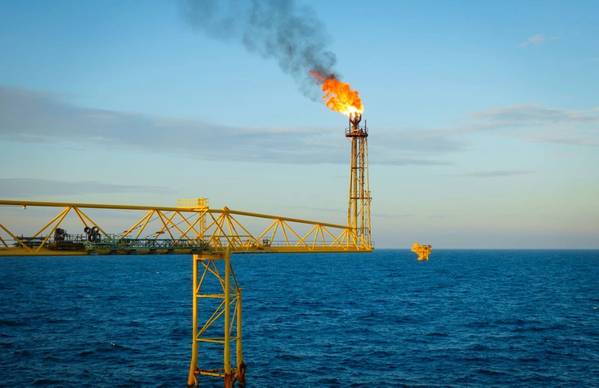
The UK’s offshore oil and gas industry has committed to cutting operational emissions by half in the next decade through operational improvements, flaring reduction, and powering offshore platforms with electricity.
OGUK, a UK industry body representing the offshore oil and gas industry on Tuesday released a report The Pathway to Net Zero: Production Emissions Targets.
The report outlines how targets will be achieved through changes to operations, progressive reductions in flaring and venting, and major capital investment programs aimed at using electricity rather than gas, to power offshore facilities, via connection to offshore renewables, or to the onshore power distribution network.
"The targets are a key part of a transformational sector deal that industry is now formally discussing with the UK Government. With jobs, the supply chain and energy communities at its core, the sector deal will consider how the UK’s oil and gas industry can support a green recovery," OGUK said Tuesday.
According to the report, emissions associated with the production and processing of offshore UK oil and gas currently account for four percent of the UK’s total greenhouse gas emissions.
In 2018, 18.3 million tonnes of CO2 equivalent GHGs were emitted from upstream oil and gas operations, representing 4 percent of total UK emissions.
Of this, 14.6 million tonnes CO2 e (80 percent) were associated with the production of oil and gas at offshore installations, 14 percent of emissions are from onshore terminals and 5 percent from logistics. The majority (91 percent) of emissions were CO2, with methane representing the second largest (8 percent of total upstream emissions on a CO2 e basis).
Across the sector the main sources of emissions are from power or heat generation, gas compression, flaring, and venting. In 2018, 70 percent of emissions from offshore assets were associated with power or heat generation from turbines, engines, and heaters, while 29 percent were from flares and vents.
OGUK Chief: Industry will play its part in addressing climate change
OGUK Chief Executive Deirdre Michie OBE said: "The coronavirus pandemic and low oil and gas prices have had a devastating impact on the UK’s offshore oil and gas industry. Given the limited impact that the severity of the lockdown has had on global emissions, it is clearer than ever that we need a fair, inclusive, and sustainable transition towards climate targets. We need a green recovery which supports jobs, supply chain companies and energy communities.
Michie said the UK offshore oil and gas industry will play its part in addressing the challenge of climate change part by reducing its emissions and using its skills to develop the solutions that will be needed to make a significant contribution to the UK’s overall targets.
“A transformational sector deal could help unlock the full potential of this industry to support a green recovery and we’re delighted to confirm that we are now in formal discussions about it. With a clear pathway to becoming a net-zero basin by 2050 and with support from governments and regulators, we can protect domestic energy supplies, jobs and communities whilst embracing the opportunities which will come from being at the forefront of delivering a low carbon economy,” Michie said.
Report Author: Industry to remove 9 million tons of CO2 from operations
Report author and OGUK Emissions Improvement Manager Louise O’Hara Murray said the targets would remove over 9 million tonnes of CO2 equivalent greenhouse gas emissions from our operations over the next decade; the same as taking nearly two million cars off the road for a year. Each year we will publicly show progress against our commitments on a sector-wide basis.
“They have been developed with industry following a detailed assessment of the measures needed to deliver them. They consider changes to operations, progressive reductions in flaring and venting and major capital investment programs to decarbonize production operations.
“Many of the major capital investment projects which will help our sector to decarbonize, including the powering of assets with electricity instead of hydrocarbons, the development and deployment of carbon capture and storage (CCS) and hydrogen both on and offshore, will need to be developed at scale to help other industries accelerate their own efforts to reduce emissions.”
Read here the full report (pdf) OGUK Pathway to a Net-Zero Bas Production Emissions Targets Report 2020.pdf